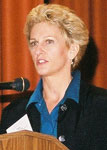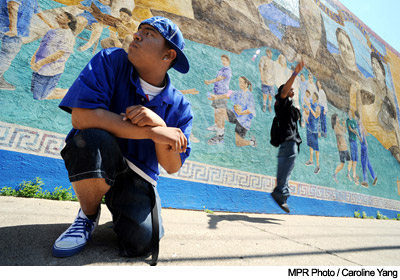
Ms. Pam Korza
Spotlight on 2020 Johnson Fellowship Nominees: Music as the Heart of Equitable Neighborhood Development
Posted by Jul 20, 2020

Ms. Pam Korza
This last post in our ARTSblog series featuring nominees for the 2020 Johnson Fellowship for Artists Transforming Communities celebrates Eddy Kwon—musician, educator, program designer, and facilitator of equitable community development. Integrating music as a fundamental component of Price Hill Will, a community development organization in Cincinnati, Kwon’s impacts are many and draw upon their own unique artistry and artistic vision, sustained work in creative youth development, and innovative initiatives in creative citizenship. First, Eddy Kwon is a composer, violinist, jazz musician, and improviser, performing as a member of the Art Ensemble of Chicago and with musicians from the Association for the Advancement of Creative Musicians. Kwon is equally a community leader who works daily at the intersection of creative youth development, creative citizenship, and equitable community development.
Read More
 Pam Korza
Pam Korza
 According to the Forum of Regional Associations of Grantmakers, giving circles are a growing trend in philanthropy that is rooted in tradition and here to stay. Also called donor circles, they are a relatively simple way for everyday people to pool their money and decide together where to give it away. They have emerged over the last decade as a significant philanthropic trend among donors of all wealth levels and backgrounds. The Forum has identified more than 400 circles across the country engaging more than 12,000 donors, and giving close to $100 million over the course of their existence.
According to the Forum of Regional Associations of Grantmakers, giving circles are a growing trend in philanthropy that is rooted in tradition and here to stay. Also called donor circles, they are a relatively simple way for everyday people to pool their money and decide together where to give it away. They have emerged over the last decade as a significant philanthropic trend among donors of all wealth levels and backgrounds. The Forum has identified more than 400 circles across the country engaging more than 12,000 donors, and giving close to $100 million over the course of their existence.





